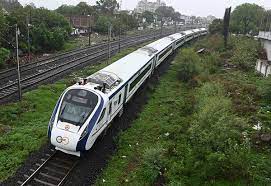

This represents a remarkable 81% increase in account numbers and a staggering 150% jump in total deposits compared to 2018. According to a research report by...


India’s travel and tourism market is on track to reach a revenue of USD 23.72 billion in 2024, with an estimated annual growth rate of 9.62%...


Funding remains a strength for PNB as customer deposits constituted about 91 per cent of total funding in 9MFY24 by our estimates, driven by high depositor...


The proposed taxation of the overseas income of non-UK domiciled residents by the United Kingdom government has triggered a rush among wealthy non-resident Indians there to...


As per National Health Accounts estimates for 2019–20, the key achievements in the health sector are that the total health expenditure was Rs 4,83,259 crore in...


The firm, boasting a 28% share in the local instant noodles market and generating an annual revenue of 8 billion rupees ($96.2 million), is in preliminary...


Blue Star intensifies its product offerings with a plethora of new home air conditioner models, targeting a remarkable 25% revenue boost in the air conditioning segment,...


Bengaluru-based aerospace components manufacturer, JJG Aero, has secured USD 12 million (Rs100 crore) in inaugural funding from CX Partners which will be used primarily to increase...


Ramkrishna Forgings Limited, one of the leading suppliers of rolled, forged, and machined products has received a significant order for Vande Bharat train-set valued at INR...


Rural India continues to feel a sharper price pinch with inflation inching up in rural areas to 5.4 per cent from 5.3 per cent while urban...